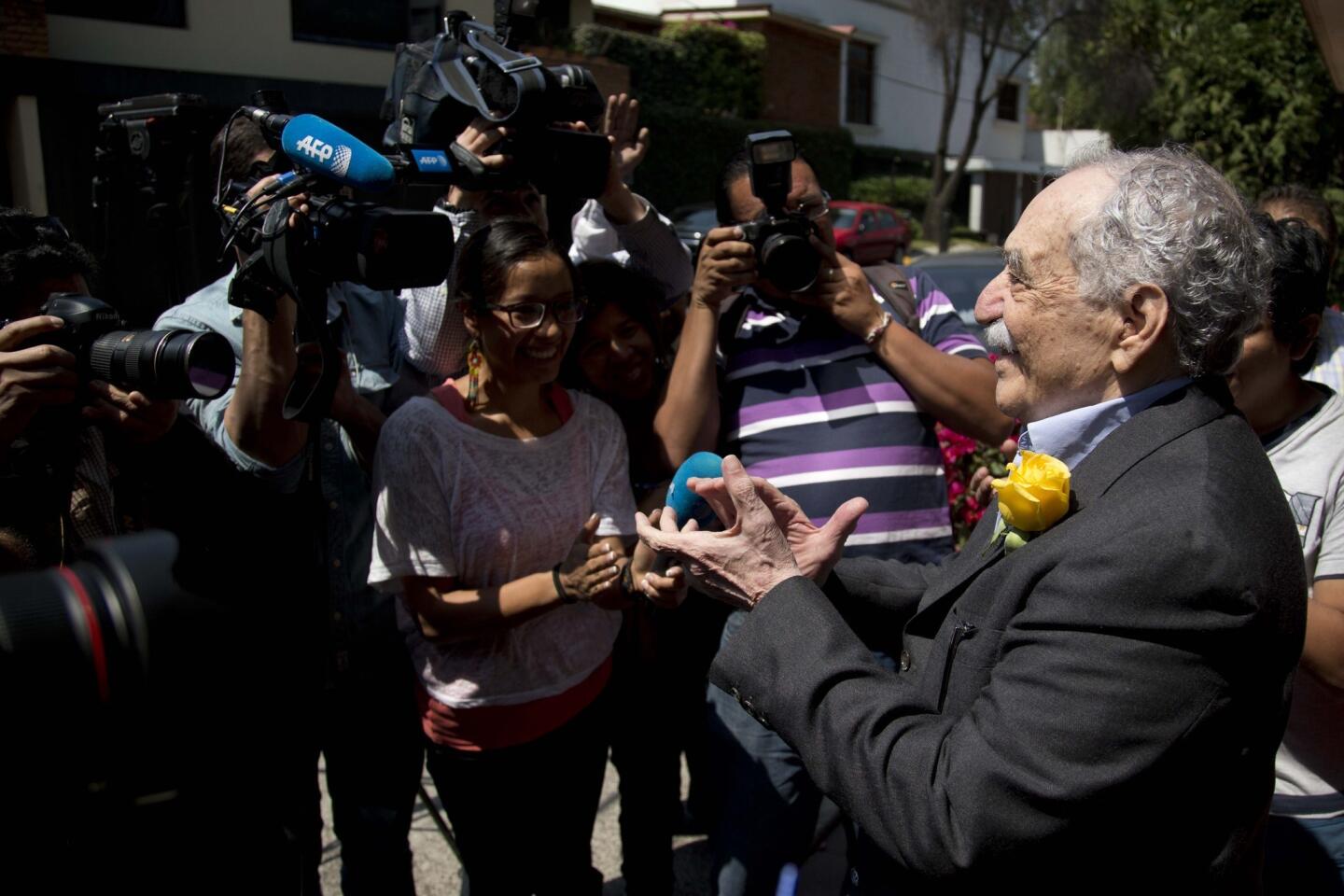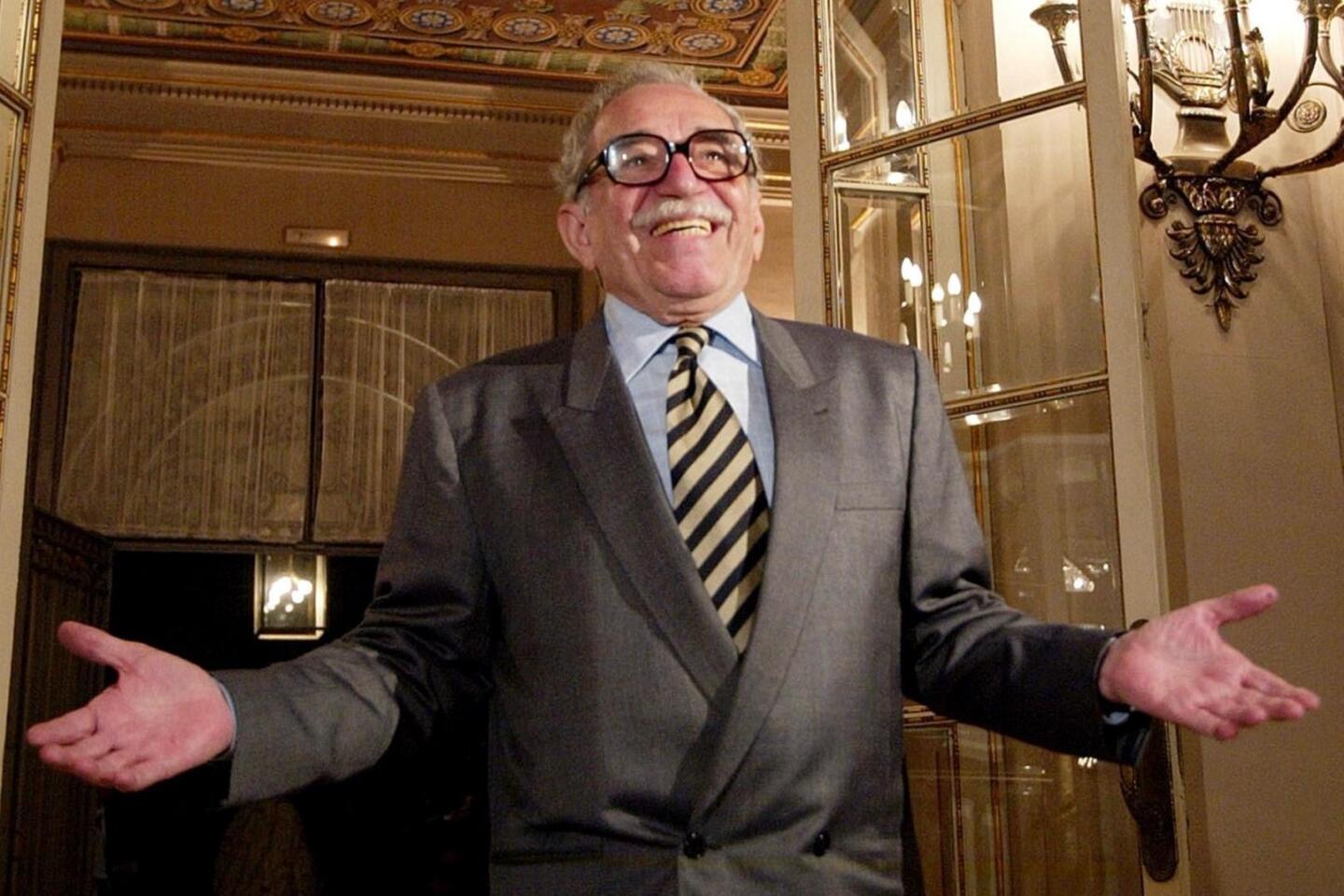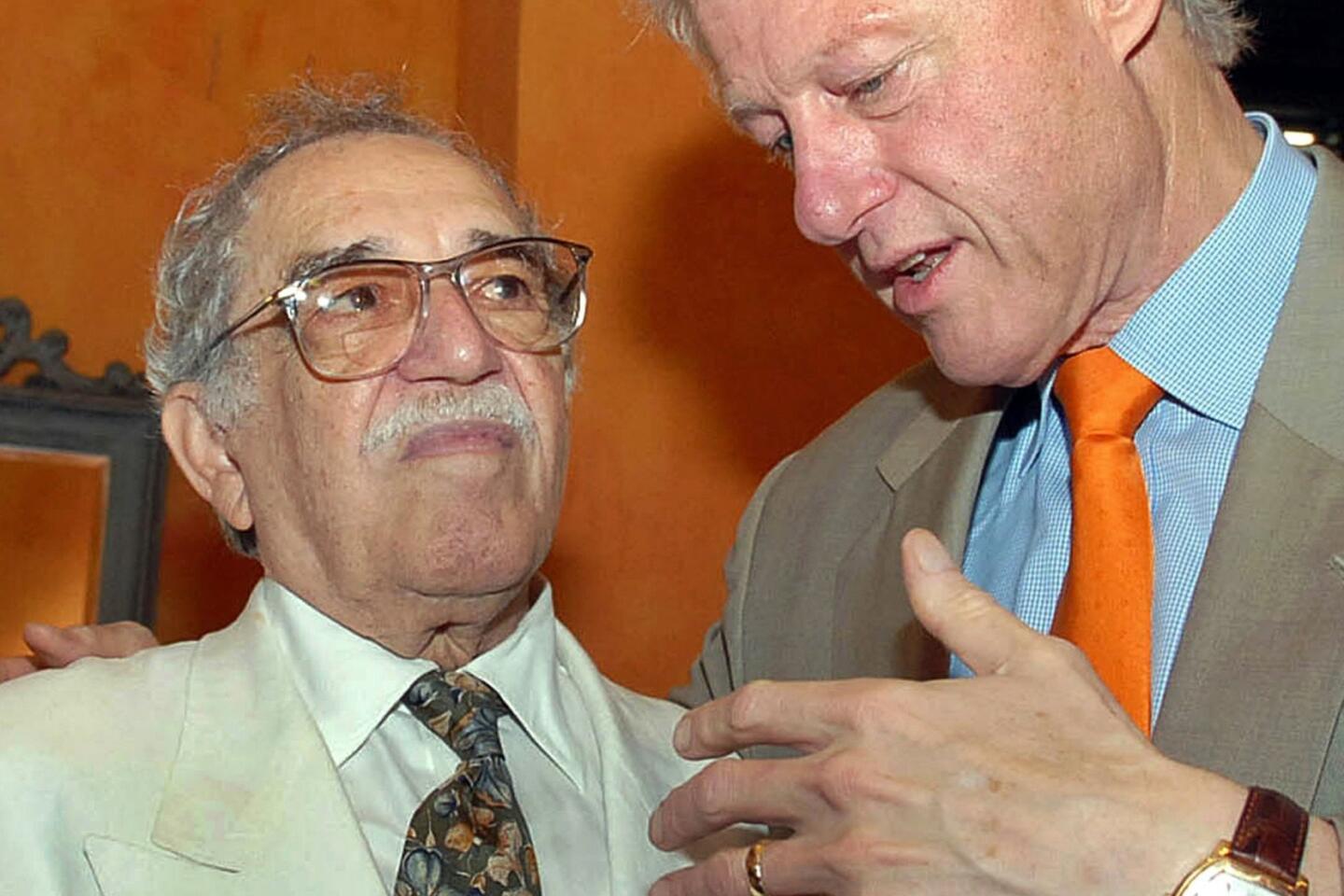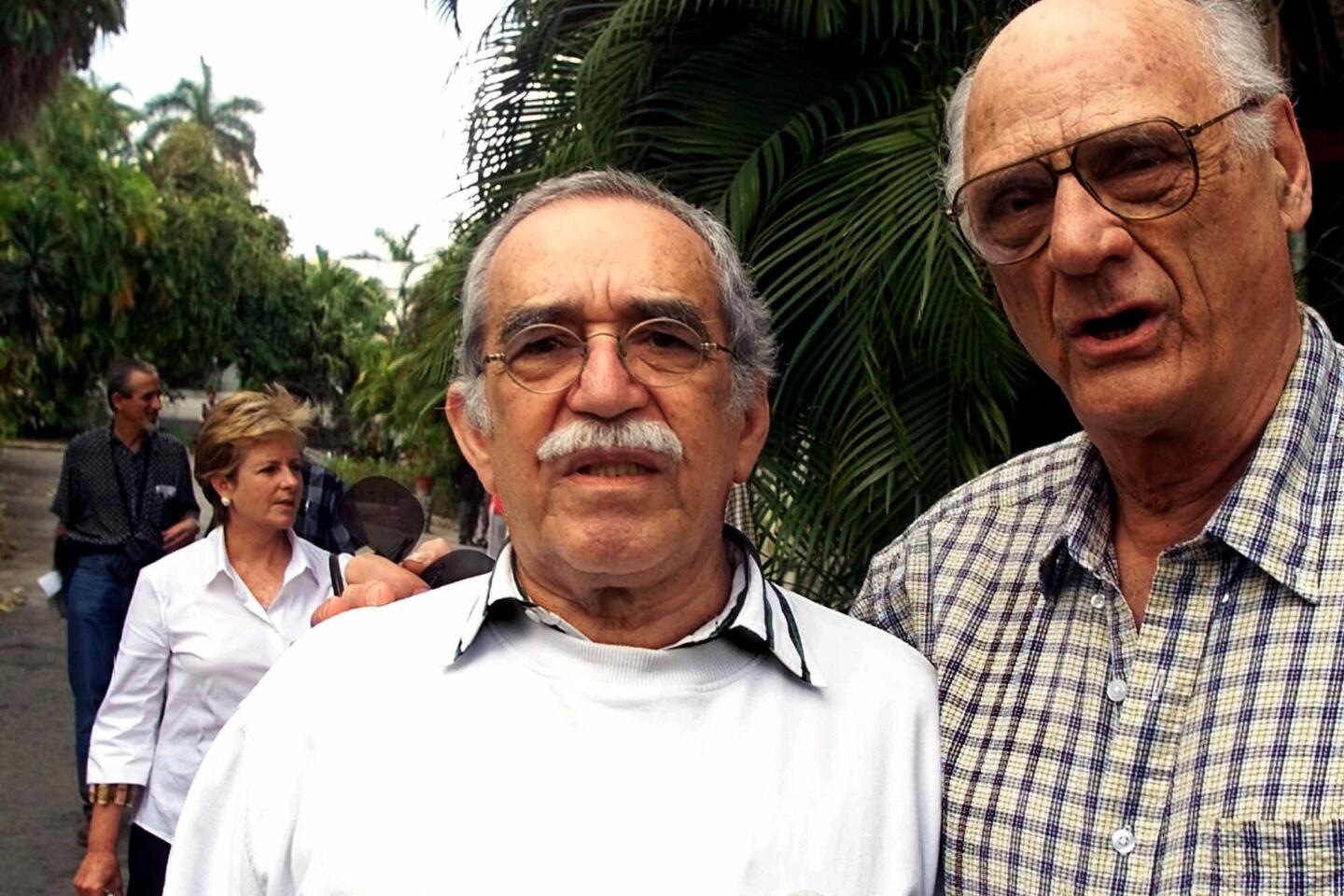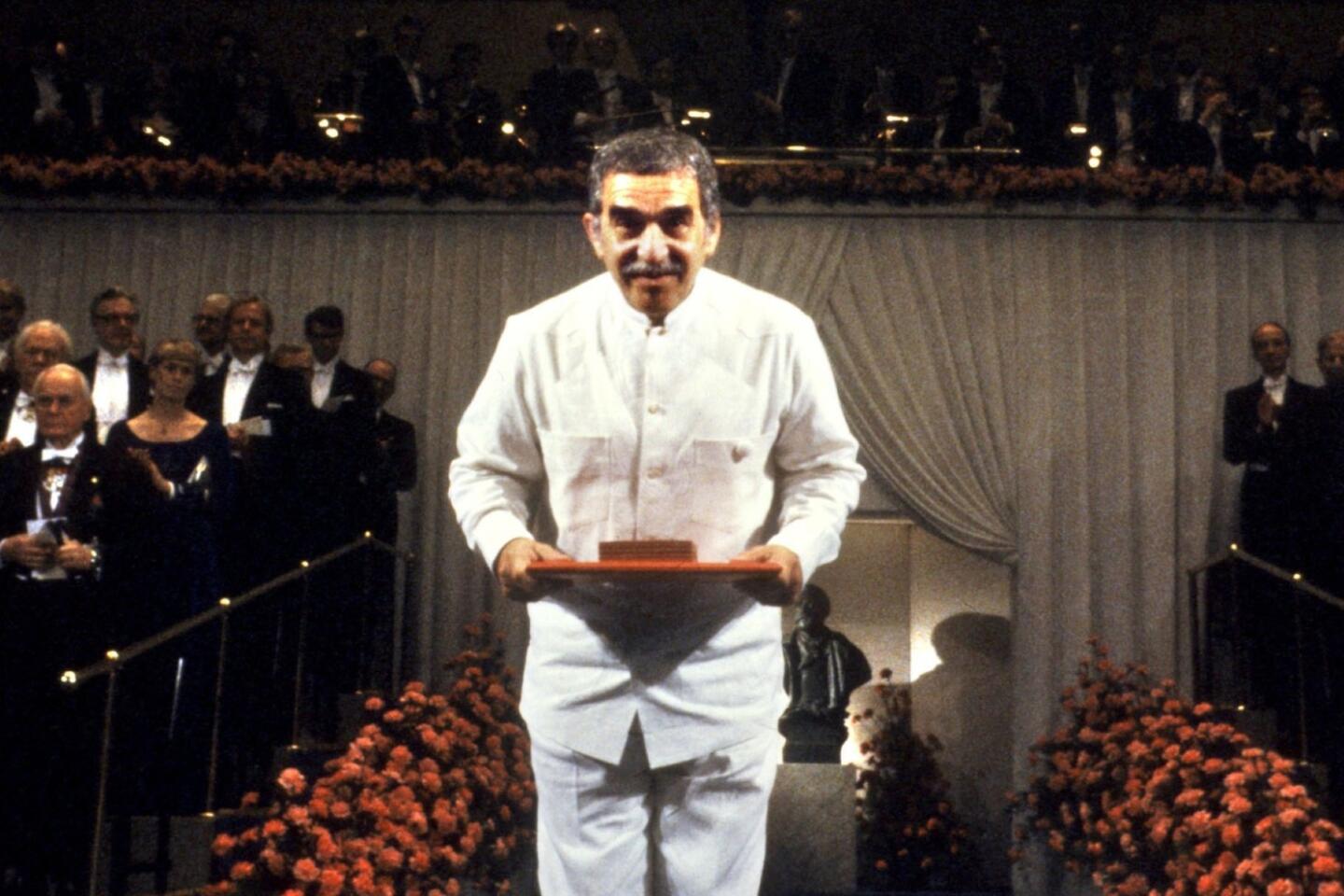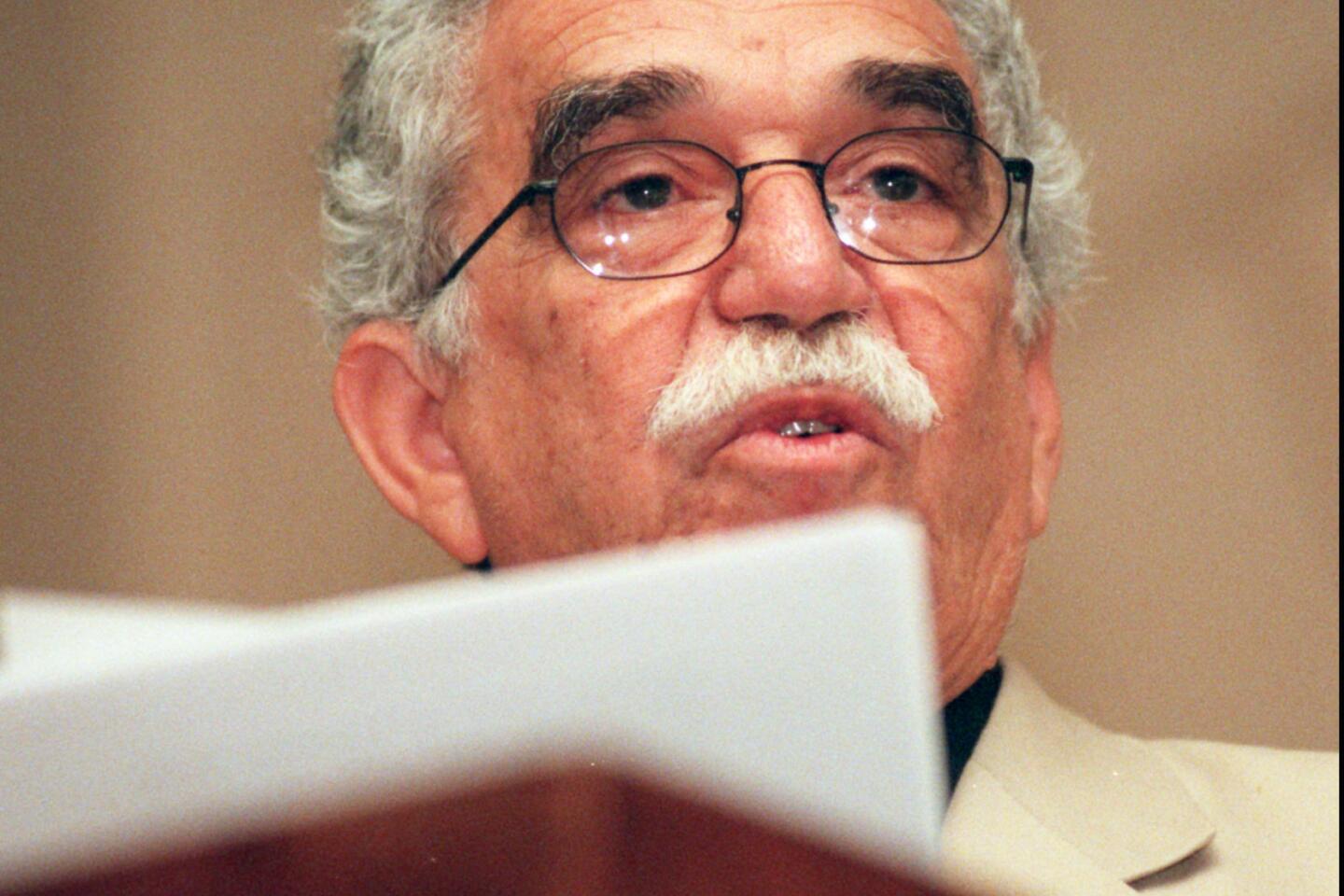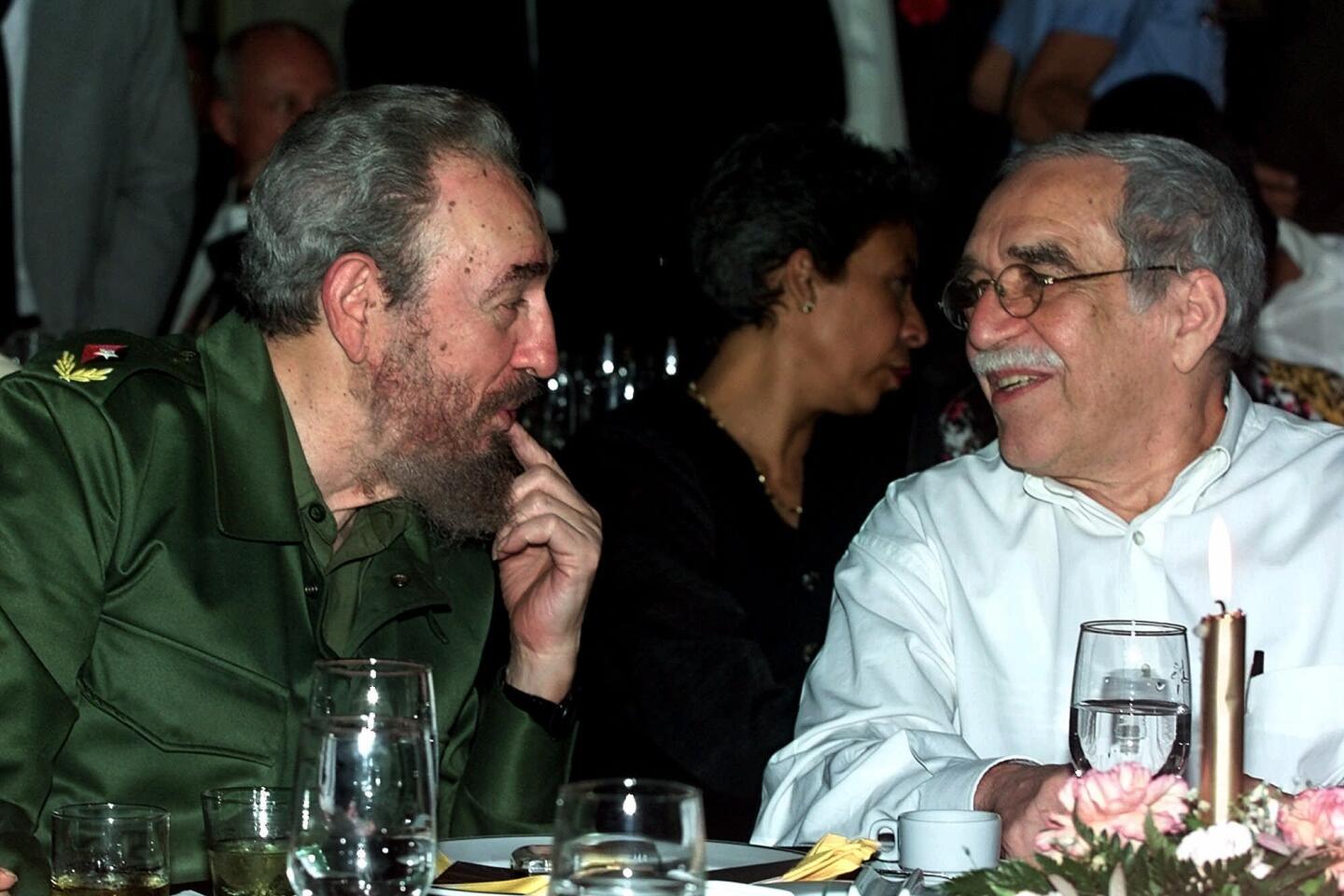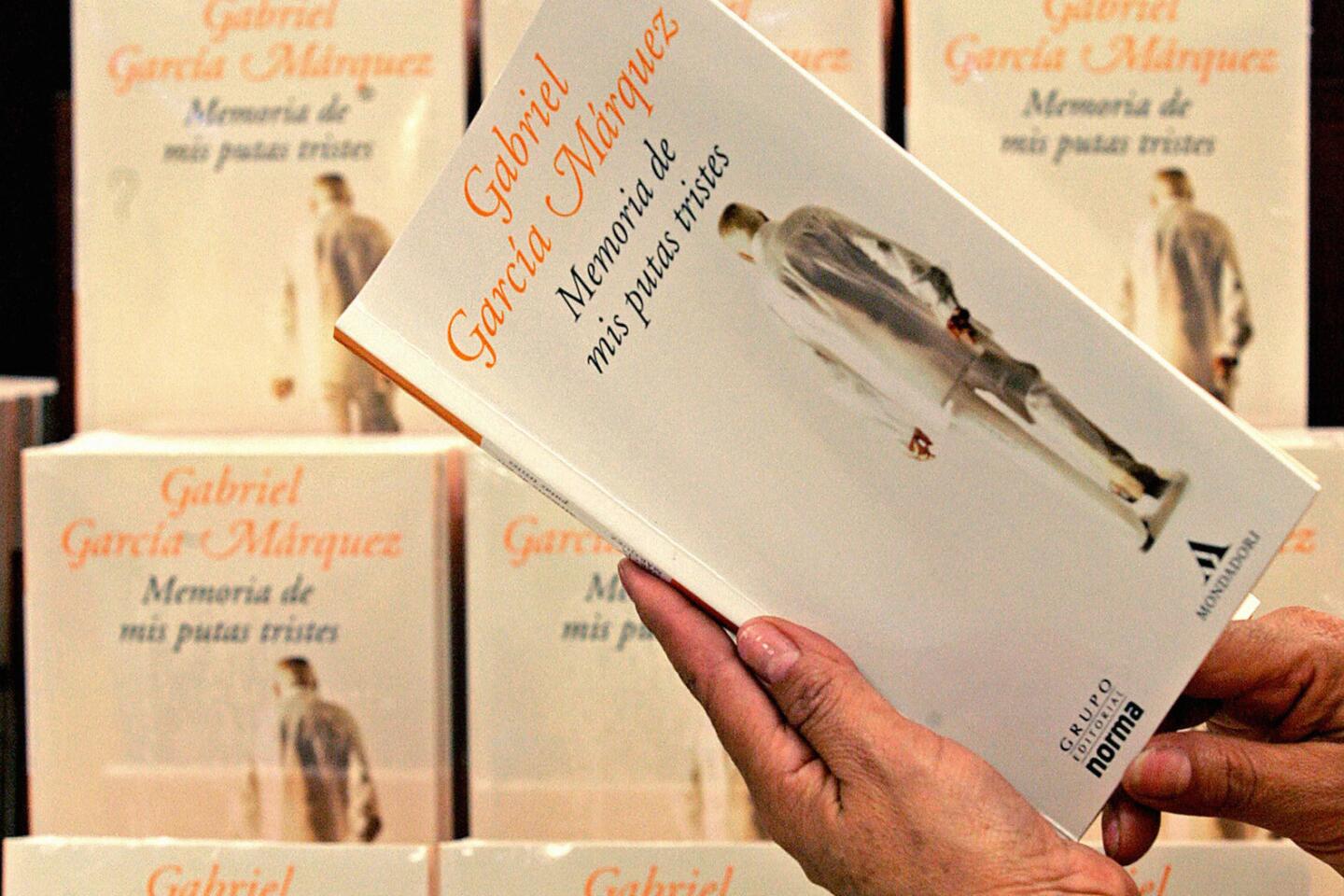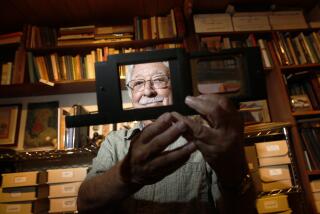Gabriel Garcia Marquez, Nobel Prize-winning author, dies at 87
Gabriel Garcia Marquez, the Nobel Prize-winning Colombian novelist whose “One Hundred Years of Solitude” enchanted millions of readers around the world and popularized the emerging Latin American literary genre known as magic realism, has died. He was 87.
Garcia Marquez died Thursday at his home in Mexico City, Mexican media reported. A cause of death was not immediately annnounced, but Garcia Marquez had been in failing health for some time. He was released from the hospital just over a week ago.
The death in his home, accompanied by his wife and other members of his family, was confirmed by Rafael Tovar y de Teresa, president of the official Mexican cultural association. Tovar said he had spoken to the family.
An appreciation: Gabriel Garcia Marquez was more than magical realism
Garcia Marquez’s death represents the passing of one of the world’s greatest living authors, and the loss of a powerful public intellectual whose opinions on Cuba, military dictatorship and Latin American cultural autonomy made front-page news.
The news was met with an outpouring of grief and reverence for the writer known to his admirers simply as “Gabo,” and who was often compared to Hispanic literature’s other titan, “Don Quixote” author Miguel de Cervantes. More than any other author, Garcia Marquez fueled the post-World War II popularizing of Latin America literature known as the “Boom.”
“Being a contemporary of Gabo was like living in the time of Homer,” said Colombian writer Hector Abad Faciolince, who described “One Hundred Years” as Latin America’s first and only epic work of literature. ”In a mythic and poetic way, he explained our origins. His verbal imagination and creative force were astonishing.”
Garcia Marquez did not invent magic realism -- the blending of fantasy and outrageous facts “told with a straight face,” as he once put it. The style was pioneered by Cuban writer Alejo Carpentier, Mexico’s Juan Rulfo and Argentina’s Jorge Luis Borges. But Garcia Marquez certainly burnished the technique with the publication of “One Hundred Years of Solitude,” the tale of four generations of the Buendia family set in a backwater banana depot he christened Macondo but which was based on his birthplace Aracataca, near Colombia’s Caribbean coast.
Success came late to Garcia Marquez, his blockbuster 1967 novel published shortly before he turned 40. Until then he had scraped by as a newspaper reporter, advertising copywriter and screenwriter. He was so poor when he finished his big novel that he had to mail the manuscript to his Argentine publisher in two packages because he couldn’t afford to send it all at once.
But the subsequent growth of his global fame and influence leading up to and following his winning the 1982 Nobel Prize for literature was a phenomenon unsurpassed over the last century by any writer with the possible exception of Ernest Hemingway.
Garcia Marquez’s stature, journalistic instincts and innate fascination with leaders and the power they wield helped him forge friendships with world figures from Presidents Bill Clinton of the U.S. and Francois Mitterrand of France to dictators Fidel Castro of Cuba and Omar Torrijos of Panama.
A complete obituary will follow at latimes.com/obits.
ALSO:
Lorenzo Semple, 91, Hollywood screenwriter
Robert LaVigne, 85, artist who painted Beat figures
news.obits@latimes.com
Times staff writer Tracy Wilkinson in Mexico City contributed to this report.
More to Read
Sign up for our Book Club newsletter
Get the latest news, events and more from the Los Angeles Times Book Club, and help us get L.A. reading and talking.
You may occasionally receive promotional content from the Los Angeles Times.
